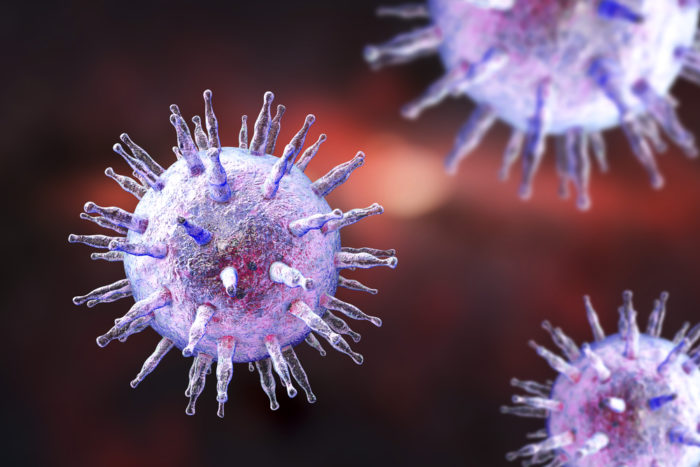Contents:
- Medical Video: Mono Virus Discovery | Cincinnati Children's
- Facts about Epstein Barr virus
- How can the Epstein Barr virus cause a variety of serious diseases?
Medical Video: Mono Virus Discovery | Cincinnati Children's
The Epstein Barr virus, known as the cause of mononucleosis, turns out to increase the risk of some people developing seven other serious diseases. How did it happen? The following is a review based on research findings.
Facts about Epstein Barr virus
Epstein-Barr virus (abbreviated as EBV) is a virus that is very common in humans and is transmitted through saliva. This virus is best known as the cause of mononucleosis infection. This disease infection is indicated by symptoms of fever, sore throat, and inflammation of the lymph nodes in the neck. Quoted from Healthline, as many as 90 to 95 percent of adults worldwide are infected with this virus during their lives.
This virus often attacks when someone is in childhood. Usually, children who get this virus only experience mild pain such as a cold. However, adolescents or infected adults usually experience more severe symptoms such as fever, sore throat, swollen lymph nodes, and a weak body.
Symptoms usually last for weeks to months and do not result in complications of serious illness. After being infected, the virus stays in the body for life even though you only experience pain once.
How can the Epstein Barr virus cause a variety of serious diseases?
Maybe you have been infected with mononucleosis due to Epstein Barr virus in adulthood, but don't panic. Infected with EBV in adulthood does not mean you will be exposed to autoimmune diseases such as lupus and others. There are various other factors involved in this, including dozens of gene variants that increase your risk of getting autoimmune diseases.
Based on research conducted by scientists at Cincinnati Children 's Hospital Medical Center, besides being known as a cause of infection with mononucleosis, this virus can cause seven other diseases, namely:
- Systemic lupus erythematosus
- Multiple sclerosis
- Rheumatoid arthritis (rheumatism)
- Juvenile idiopathic arthritis
- Inflammatory bowel disease (IBD)
- Celiac disease
- Type 1 diabetes
The study, published in the journal Nature Genetics, shows that the protein produced by the Epstein-Barr virus called EBNA2 binds to several locations along the human genome (collection of genes) associated with these seven diseases.
Normally, when viral and bacterial infections attack, the body responds by ordering B lymphocyte cells in the immune system to release antibodies. These antibodies will be used by the body to fight various foreign substances that enter the body including bacteria and viruses.
However, when EBV infection occurs, something strange happens. The Esptein-Barr virus attacks B's own lymphocyte cells, reprograms them, and takes control of B cell functions in an unusual way. How come?
A team of experts from Cincinnati Children 's Hospital Medical Center found new facts about how EBV does this. It turns out that there is a process that involves a small protein called a transcription factor.
Human cells contain proteins called transcription factors that are responsible for turning on and off certain genes. EBV uses these proteins to activate and deactivate genes at the right time to help them carry out their respective functions and respond to their environment.
This protein continuously moves along the DNA strands, changes specific genes and turns them off to make cell function as expected. So that when the virus infects cells, the virus makes proteins or transcription factors themselves. As a result, the normal function of cells also changes so that it can cause the appearance of various autoimmune diseases.
The researcher was led by one of them by Dr. John Marley, Ph.D., Head of Genomics and Autoimmune Etiology at Cincinnati Children's Hospital Medical Center found that seven autoimmune diseases shared a common set of abnormal transcription factors. Thus, the binding of these abnormal proteins to certain parts of the genetic code increases the risk of the emergence of the seven serious autoimmune diseases mentioned above.
However, further research is needed to understand why only a few are infected with EBV which eventually develops autoimmune diseases. The biggest possibility is because fenvironmental actors, poor diet, pollution, and exposure to other harmful substances can also interact with human genes and cause certain diseases.
















